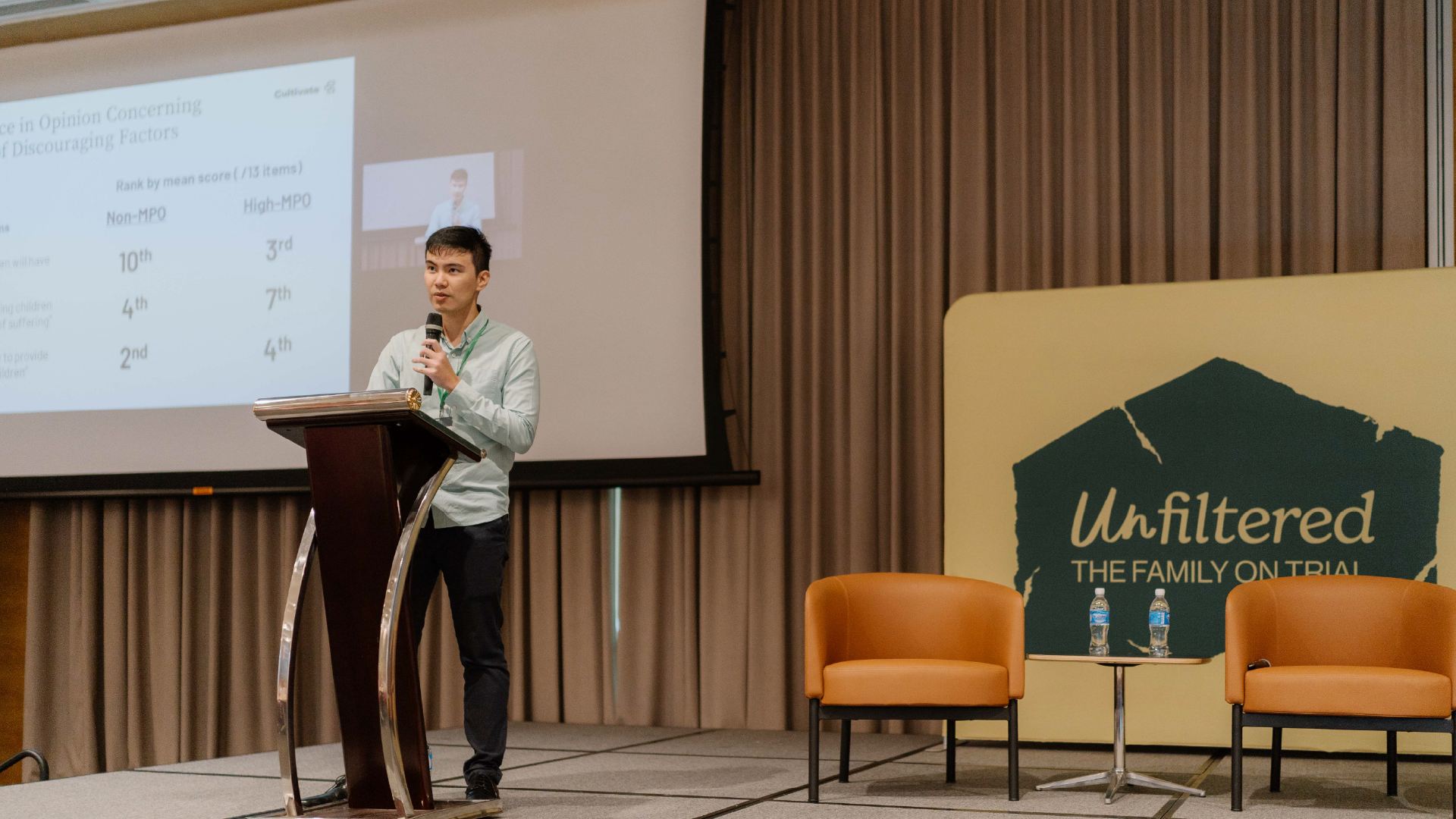(Featured image taken at Our Common Ground in Bedok. Photo provided by Kelvin Seah)
It’s ironic that in today’s world, where everyone is digitally connected to each other, it has become harder than ever to truly connect.
This feels especially true for many fathers, including our community of stay-at-home fathers.
On most days, it can feel like we’re living in the margins of a work-obsessed society. We are more often than not unseen, unheard, and uncertain where we belong. Where do we fit into the busy grind of this city that never sleeps?
That’s what makes our journey these past two years so remarkable.
You see, what started as a few casual chats among fellow stay-at-home dads has grown into something more than any of us expected: a deeply nurturing, tightly bonded community of fathers journeying together –. not only in parenting, but in becoming better men, friends, and human beings.
A community that shows up because we understand that connection matters.
This Father’s Day, we find ourselves reflecting not just on what it means to be a dad, but what it means to belong in a community of fathers.
This is the story of how a few ordinary dads found something extraordinary. Not by doing more, but by simply showing up for one another in small, yet profound ways.
It All Began With a Cup of Coffee
It was March 2023 when six stay-at-home dads (SAHDs) met for coffee.
There was no agenda. We were just curious, and perhaps sensing that we weren’t the only ones feeling adrift in our role as fathers who spend most of our waking hours caring for our children.
That initial conversation didn’t change the world.
But something clicked within.
We agreed to meet again the next month. And the next. And the next.
Over time, others joined.
We weren’t trying to start a movement. We just needed to talk with fellow fathers. To laugh. To say things out loud we hadn’t said anywhere else.
Couldn’t say anywhere else.
Things like the unique joys and challenges of raising kids as SAHDs. How we as SAHDs and men, feel invisible sometimes. How hard it was in many a family or social gathering to answer the question, “So, what do you do?”
These monthly meetings became the seed of what would eventually be called The Ordinary Dad (TOD). Though the name was conceived at the very start, it took time for us to grow into its identity.
But the point was always clear.
We didn’t want to stand out. We didn’t want to be extraordinary. We just wanted to be who we were. To connect with other like-minded dads who prioritise parenting and wanted to raise kids well.
We wanted people to see us as fellow members of the same society – to be heard, and accepted as equals.
No more and no less.
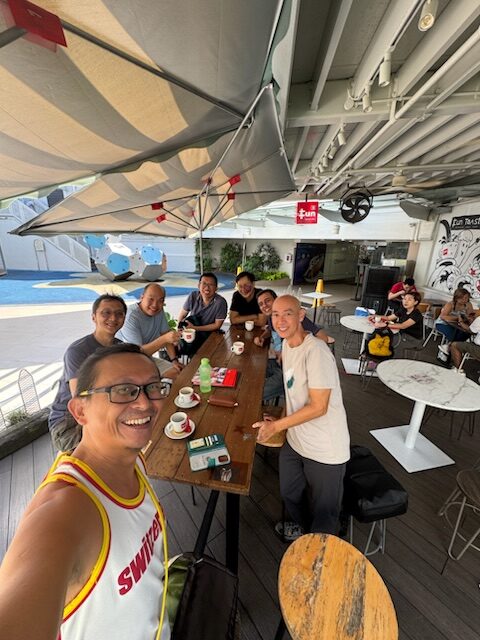
The “What? You Too?” Moment
C.S. Lewis once wrote that friendship is born at that moment when one person says to another, “What? You too? I thought I was the only one.”
That moment happened again and again in our gatherings.
One dad opened up about the loneliness he felt staying home while his peers climbed the corporate ladder. Another admitted he didn’t know how to talk to his kids about their emotions because no one had ever talked to him about his own. Yet another spoke of struggling to motivate his special needs son to try something, anything, new.
Each time someone dared to be vulnerable, someone else responded, “Me too.”
That’s when we realised we had stopped being just a group. We became a refuge. A place where we didn’t have to explain or justify ourselves to all and sundry. Where it was safe to speak freely, ask for advice, or admit we didn’t have the answers.
And in a culture where men are often taught to be self-reliant, problem-solvers, and emotionally reserved, this kind of space where raw vulnerability is the rule and not the exception is nothing short of radical!
More Coffee Table Than Message Bubble: Why Face-to-Face Matters
While it is true that digital platforms and messaging systems make connecting today seem effortless, we learned quickly that they can only take us so far. For there’s a warmth, accountability, and depth of community that can only happen in-person.
And so we made the effort. We met. Every month. In-person. For two years now and counting.
We met over breakfasts, park outings, and even pickle ball games! Every time we gathered, the bonds deepened. We laughed harder. We listened better. We understood more.
It wasn’t just about exchanging tips or coordinating playdates. It was about being seen. And, being seen deeply.
Face-to-face time allowed us to pick up on what wasn’t being said over text. A tired look. A quiet mood. A sigh. Ssmall moments were cues for deeper conversations. Conversations about mental health, marital struggles, or fears about our children’s future.
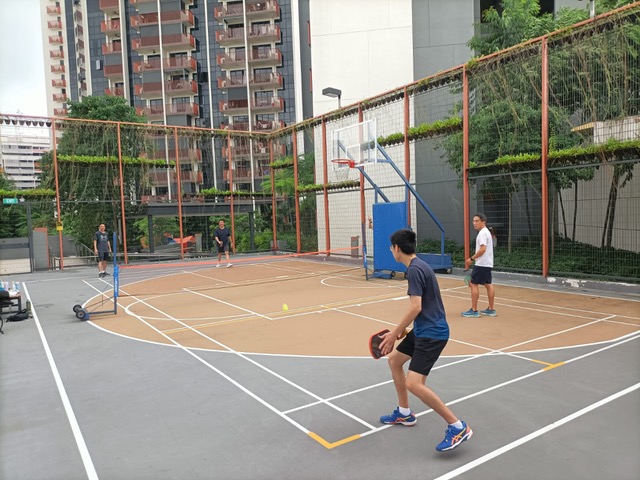
(Photo provided by Kelvin Seah)
Identity Over Activity. Community Over Collectivity.
Even though we were never about numbers, we grew in size over time.
From six members two years ago, we now have over 100! No small feat for a ground-up initiative that relies mostly on word-of-mouth.
Along the way, we noticed a crucial distinction that sets us apart: we weren’t just a collective; we were a community.
A collective is typically task-focused. It runs on roles, goals, targets, and deliverables. That’s great for getting things done. But it can feel transient. . Transactional. Devoid of connections.
A community, on the other hand, is rooted in identity and relationships. It asks not just “What am I here to do?” but “Who am I here with?” and “Who am I becoming through this?”
In a true-blue community, the most valuable thing you can offer is neither your ability nor your skills. It’s your time, attention, and presence.
We didn’t assign roles, form a task force, or convene a subcommittee.
Instead, we humbly made space for one another. Space for questions, stories, tears, and laughter. That’s not to say structure has no place. But for us, structure serves relationship, not the other way around.
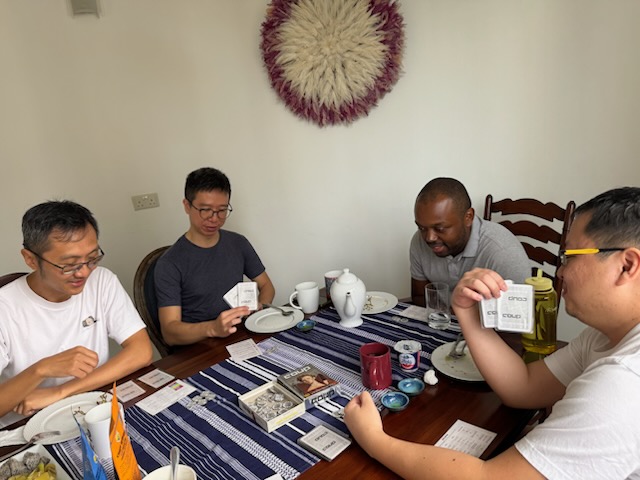
(Photo provided by Kelvin Seah)
The Power of Shared Need and Solidarity
Something beautiful happens when people gather around a shared need.
Many of us came into TOD feeling a quiet ache and hunger for friendship, purpose, and understanding.
Over time, we realised that expressing authentic needs is not a weakness. It’s a doorway.
One of our dads likes to say, “The treasure wants to find other treasures.” That’s how we see it now. Each father brings something valuable. Not just wisdom or experience, but his unique story. Or simply himself, warts and all.
And, in sharing personal stories, we open the door to help one another heal, grow, learn, mature, and thrive.
Over the course of these two years, we’ve talked about nearly everything. From toddler tantrums to teenage angst. From father wounds to abiding faith. And in those conversations, we’ve unearthed not only strategies but, more importantly, strength and solidarity.
Not Everyone Has Bandwidth
To be sure, not all groups flourish. And even for us, there’s no way of telling if we will continue to either.
We’ve seen other chat groups and parent circles fizzle out.
The biggest challenge? Bandwidth.
Parenting is exhausting. Family and commitments are demanding. Life is full. Sometimes, just showing up can be way too hard.
We don’t fault anyone for that. We’ve all had seasons where we needed to pull back. To take a leave of absence, just like in the corporate world.
But what we’ve learned is that community thrives when people prioritise it. Not because they have to, but because they know what’s at stake if they don’t.
And they realise that together, they are plugged into something much bigger than the sum of their individual selves.
Which in essence encapsulates who we are in TOD: We are a caring community of dads, connected and committed to the betterment of one another in our ongoing journey to be great husbands and fathers.
The Magic of Ordinary Moments
With all that said, we still find ourselves smiling often and exchanging knowing looks when people ask what our group does.
Because there’s no single answer.
We share meals. We talk about our kids. We listen to each other’s fears. We joke. We go for walks.
Behind all these ordinary moments is something extraordinary: a community of trust. A shared story. A quiet but powerful belief that we’re better husbands, fathers (and even better men) because we walk this road together.
Looking Ahead
As we mark Father’s Day this year, we hope more dads, especially those feeling isolated, know this: you don’t have to do it all by yourself.
Whether you’re a stay-at-home dad, a working father, or somewhere in between, there’s strength in vulnerability. There’s power in asking for help. And there’s beauty in building something slow, steady, and real when you connect with others on a similar pathway as yourself.
Fair warning, though: community doesn’t happen overnight. It’s more art than science. And there are many moving parts that are often outside of your control. After all, communities are, by nature, complex and messy.
But it is what brings hope when one feels alone. And it begins with one small step that all our dads in TOD have taken: reaching out, showing up, and saying, “Hey, me too!”
That’s how it started for us. How we continue to connect deeply as we show up each time.
And today, it is still the heartbeat of what we’ve become in community. As friends, husbands, fathers, and men.
To all our fellow fathers out there, Happy Father’s Day!
Kelvin Seah and Tim Wong are pioneer members & community enablers in The Ordinary Dad, a community of mainly stay-at-home fathers.

Kelvin Seah
Kelvin Seah is a writer, and adjunct communications lecturer in writing, public speaking, corporate communications, copyediting, and digital & social media management. Since 2020, he’s been busy authoring his first book-length memoir on being a stay-at-home dad, as well as other book projects. But his favourite roles in life are being a husband of one wife since 2000, a hands-on father to his sons (born in 2009 and 2011 respectively), and blogging about special needs, parenting, culture, education, work, writing, and life in general. These days, when not writing, teaching or parenting, Kelvin stays cool, calm and collected by retreating to parks and pools with his favourite music, movies and memoirs. He writes about autism, parenting, and life at kelvinsmusings.com.
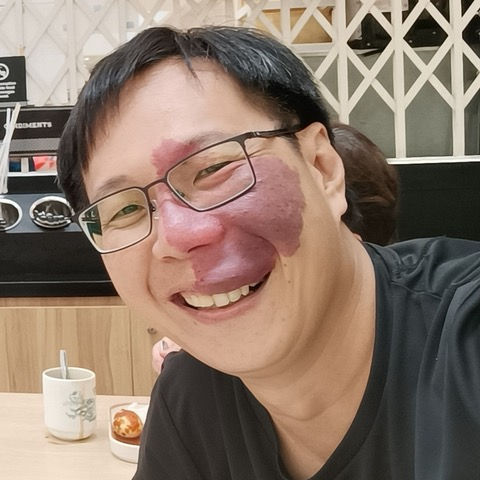
Tim Wong
Tim Wong is a stay-at-home father, a community enabler, and a parent advocate for respectful parenting and special educational needs (SEN) education reform.
As someone who once shunned community because of his facial birthmark, Tim has since found purpose in connecting and facilitating communities in Singapore, across a spectrum of groups close to his heart. Some of these are the Dyslexia-ADHD Parents Strong Group (DAS PSG), the Birthmark Community Singapore (BCS), the Respectful Parents Supporting Children with Special Needs in Asian Cultures (RPSSNCAC) Facebook groups, as well as various men and fathers communities including The Ordinary Dad and Gentle Fathering SG.
As an advocate for education reform in the area of special educational needs, Tim works with other parent advocates to raise awareness with education officials, other parents, and the public.

